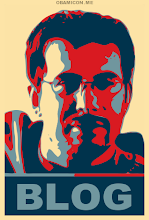Possible Indictments Will Shine Light On Bush's Dealings
The editorial in today's Wall Street Journal betrays belief and jettisons the reader to some bizarro world where the circumstances involving President Clinton's impeachment are twisted to conform with Special Prosecutor Patrick Fitzgerald's current investigation into the outing of CIA agent Valerie Plame.
To the WSJ and numerous Republicans, this burgeoning mega-scandal is about business-as-usual in Beltway politics and as the editorial states in its tagline, "Patrick Fitzgerald is really investigating a policy dispute."
The mendacity that the WSJ possesses to label this investigation, even with its firm roots in whether the decision to go to war was under false preteses, as a quibble over policy is truly off the charts.
Calling this a policy dispute would be akin to calling World War II a military skirmish.
The overriding tone of the CIA outing case is the tip of the iceberg that delves deep into the dealings of Bush's White House in the same way that Watergate shined a bright light into the corruption and dirty tricks that grew in the dark during Richard Nixon's time in office. This is anything like a policy dispute unless you think like a fascist intent on acquiring as much political power as possible with designs on suffocating the opposition party into oblivion. The "We agree to disagree tone" of the WSJ editorial is as much condescending as it is implausible.
Americans were lied to during the run-up to war by undermining our sense of fear. Even when their ever-shifting reasons for war were refuted they continued to defy the nation's collective knowledge. Vice President Dick Cheney still maintains that a nuclear strike from Saddam is still possible despite zero evidence of weapons of mass destruction. If this is a policy dispute to Republicans then their reputed love for "Family Values" does not include honesty and reason.
The majority of the WSJ's editorial deals with Ambassador Josepth Wilson. Of course, blame the messenger, right?. In fact, the first instances of a switching of party offensives is offered where Wilson is made to look like a willing conspirator with an agenda to inject the war in Iraq into the Sen. John Kerry's campaign. Welcome to the reworked "Vast Left-Wing Conspiracy" model hatched during Clinton's impeachment.
It also treats Fitzgerald as some sort of prosecutor with a political agenda when he has shown very little of anything to anyone. How can Republicans say anthing about Fitzgerald anyway? He's the guy who indicted Osama bin Laden for the first World Trade Center bombings.
It also glosses over any mention that Fitzgerald was appointed by the Bush administration. The WSJ portrays this appointment as "panicky" and sets the tone for possible defenses toward some possible laws that might be broken. In a nutshell, all of them are either unworthy of Fitzgerald's time or laws that everyone in Washington breaks everyday during the cycle of governing.
The WSJ ends its editorial by calling for President Bush to hold off dismissing anyone because even if there were laws broken they were doing it for his benefit. Loyal solider until the end, I guess.
Monday, October 24, 2005
Subscribe to:
Post Comments (Atom)



3 comments:
Nice blog, check out cyberlinx.us we have over 25,000 articles that you can use on your blog or web site
spam
parenting
pets
politics
Don't forget to check out this great site to Increase your energy thanks
Cool blog, interesting information... Keep it UP Erotic stories sissy cuckold new infiniti sneak-a-peek webcam viewer download subaru impreza wrx 16000 Sevrage ritalin Video wireless headphones delivery outcome of butalbital in pregnancy medical insurance payment personal injury insurance mexico city web cams Levitra cialis viag ra vs Installation of multiple hard drives lexapro pressure low blood Daisy model 111 Pakistan long stay travel insurance Web cams cape town http://www.merchant-account-9.info/Merchantaccount15.html Executive car alarm manufacturer clomid cyst Hairy girls beach
Cool blog, interesting information... Keep it UP » » »
Post a Comment